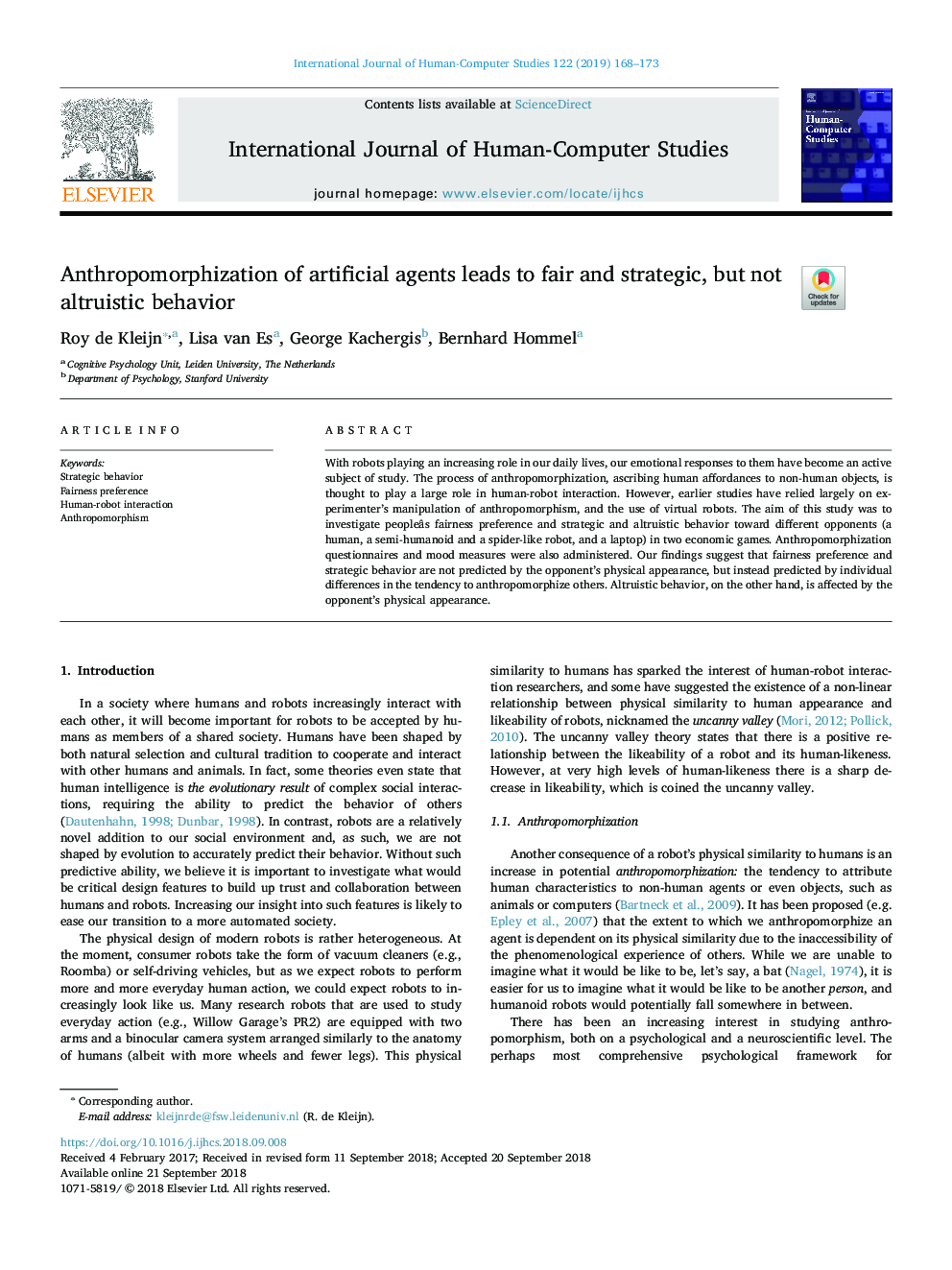| Article ID | Journal | Published Year | Pages | File Type |
|---|---|---|---|---|
| 11031638 | International Journal of Human-Computer Studies | 2019 | 6 Pages |
Abstract
With robots playing an increasing role in our daily lives, our emotional responses to them have become an active subject of study. The process of anthropomorphization, ascribing human affordances to non-human objects, is thought to play a large role in human-robot interaction. However, earlier studies have relied largely on experimenter's manipulation of anthropomorphism, and the use of virtual robots. The aim of this study was to investigate peopleâs fairness preference and strategic and altruistic behavior toward different opponents (a human, a semi-humanoid and a spider-like robot, and a laptop) in two economic games. Anthropomorphization questionnaires and mood measures were also administered. Our findings suggest that fairness preference and strategic behavior are not predicted by the opponent's physical appearance, but instead predicted by individual differences in the tendency to anthropomorphize others. Altruistic behavior, on the other hand, is affected by the opponent's physical appearance.
Related Topics
Physical Sciences and Engineering
Computer Science
Artificial Intelligence
Authors
Roy de Kleijn, Lisa van Es, George Kachergis, Bernhard Hommel,
